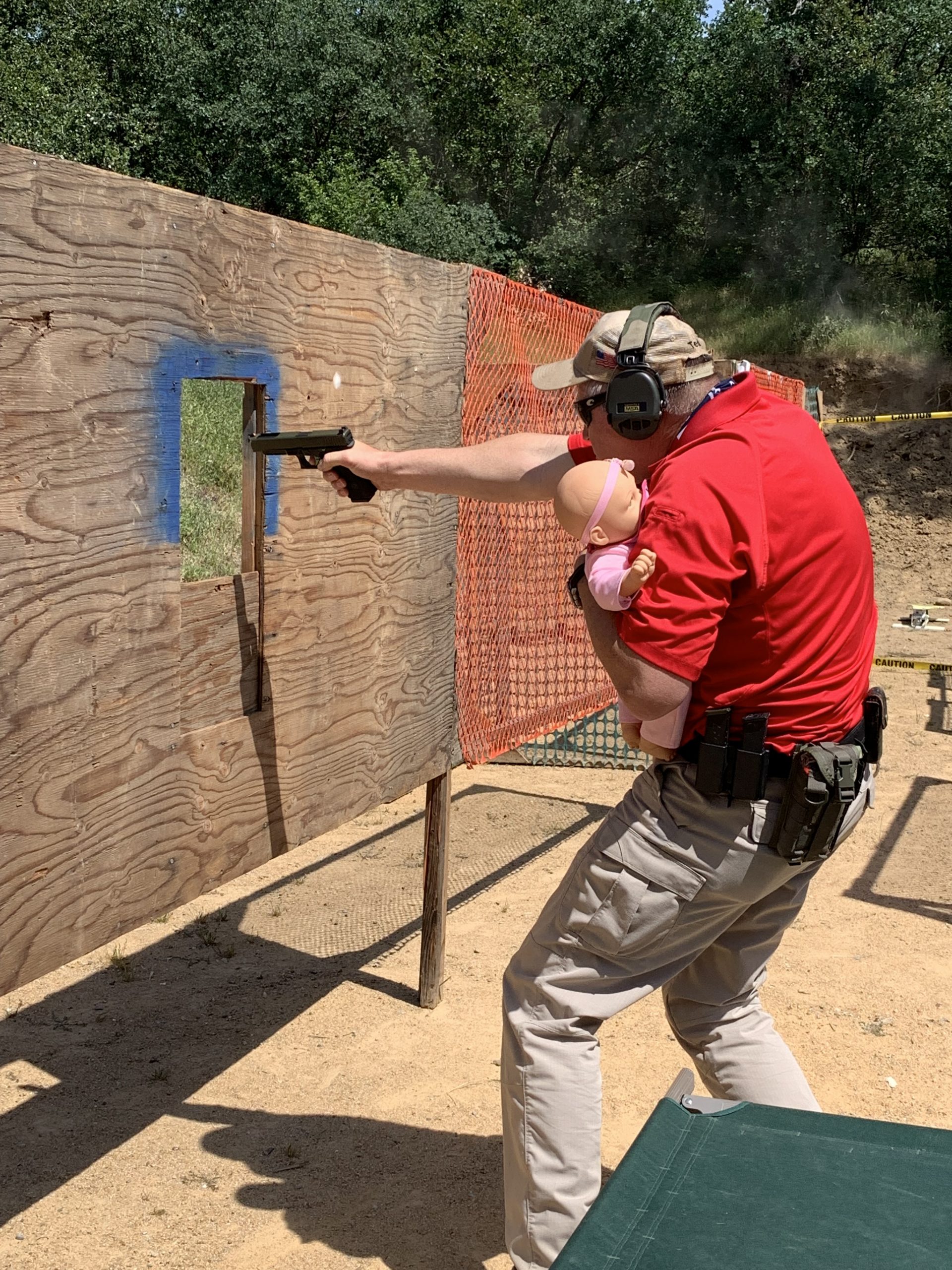The obvious confusion regarding the purchase, possession, importation, or loaning of ammunition has many of our Shasta and other county CCW students asking questions. The ammunition shortage and the eligibility checks are frustrating for students trying to complete their CCW training. I get that. Here is some clarification on the laws and how you MIGHT be able to navigate this murky subject.
Proposition 63 was passed in 2016. It required an eligibility check for anybody trying to purchase ammunition, among other laws and changes to existing laws which we can talk about later. The eligibility check was to be completed by accessing two databases kept at the CA DOJ. The problem with this is that the DOJ didn’t begin keeping accurate records until 2014 and they do not follow you from address to address. So let’s say you inherited all of your firearms and did not go through the process of the intra-familial firearms transaction, then you may not have a record of a registered firearm. The second problem is that if you moved, married, divorced, or otherwise had a data change on your driver’s license, it may no longer match the data from the Dealer Record of Sale reported to the DOJ when you purchased the firearm. In either of these instances, you will have spent your dollar for nothing. You will be denied. In order to remedy either of these, you can complete a few steps and you SHOULD be able to purchase your “freedom seeds”.
- Register a firearm. You can register ANY firearm and should be able to pass the eligibility check. It doesn’t matter the caliber or type. If you registered a .22LR Chipmonk, you could buy ammo for your .44 Rem. Mag. This does not limit quantity or caliber in any way. I will provide a link to go online and register a firearm below. The other obvious way to get this completed is to buy a firearm, transfer a firearm, pawn a firearm, complete an intra-familial firearm transfer using a BOF 4544A, which is a form you can download from the DOJ website and send in. Here is the link to do the on-line registration or update your data with the State.
https://cfars.doj.ca.gov/login.do
2. ID Issues. The new California Real ID is supposed to separate the residents here legally and those who are not. I know you didn’t want me to be such a bigot, but it is true. If you have recently (past two years) renewed your CA driver’s license and did not go into the DMV with the required documentation to receive a Real ID, you were most likely issued a “Federal Limits Apply” ID card. You cannot purchase ammunition with this documentation. Your local retailer should be able to tell you what they need to show your legal status. Here is a link to help with getting a real ID.
3. Family Members: The changes to the CA Penal Code from Prop 63 are listed below. Near the bottom is the exception for family members. It states that your family members can loan or give ammunition as long as they meet certain criteria. They must have a parent-child relationship or be a spouse or a domestic registered partner.
Lastly, there is currently no way a non-resident of California can purchase ammunition. Here is the complete text of the changes and I suggest you read it for yourself:
ARTICLE 2. Other Restrictions Relating to Ammunition [30300 – 30340]
( Article 2 added by Stats. 2010, Ch. 711, Sec. 6. )
30312.
(a) (1) Commencing January 1, 2018, the sale of ammunition by any party shall be conducted by or processed through a licensed ammunition vendor.
(2) When neither party to an ammunition sale is a licensed ammunition vendor, the seller shall deliver the ammunition to a vendor to process the transaction. The ammunition vendor shall promptly and properly deliver the ammunition to the purchaser, if the sale is not prohibited, as if the ammunition were the vendor’s own merchandise. If the ammunition vendor cannot legally deliver the ammunition to the purchaser, the vendor shall forthwith return the ammunition to the seller. The ammunition vendor may charge the purchaser an administrative fee to process the transaction, in an amount to be set by the Department of Justice, in addition to any applicable fees that may be charged pursuant to the provisions of this title.
(b) Commencing January 1, 2018, the sale, delivery, or transfer of ownership of ammunition by any party may only occur in a face-to-face transaction with the seller, deliverer, or transferor, provided, however, that ammunition may be purchased or acquired over the Internet or through other means of remote ordering if a licensed ammunition vendor initially receives the ammunition and processes the transaction in compliance with this section and Article 3 (commencing with Section 30342) of Chapter 1 of Division 10 of Title 4 of this part.
(c) Subdivisions (a) and (b) shall not apply to the sale, delivery, or transfer of ammunition to any of the following:
(1) An authorized law enforcement representative of a city, county, city and county, or state or federal government, if the sale, delivery, or transfer is for exclusive use by that government agency and, prior to the sale, delivery, or transfer of the ammunition, written authorization from the head of the agency employing the purchaser or transferee is obtained, identifying the employee as an individual authorized to conduct the transaction, and authorizing the transaction for the exclusive use of the agency employing the individual.
(2) A sworn peace officer, as defined in Chapter 4.5 (commencing with Section 830) of Title 3 of Part 2, or sworn federal law enforcement officer, who is authorized to carry a firearm in the course and scope of the officer’s duties.
(3) An importer or manufacturer of ammunition or firearms who is licensed to engage in business pursuant to Chapter 44 (commencing with Section 921) of Title 18 of the United States Code and the regulations issued pursuant thereto.
(4) A person who is on the centralized list of exempted federal firearms licensees maintained by the Department of Justice pursuant to Article 6 (commencing with Section 28450) of Chapter 6 of Division 6 of this title.
(5) A person whose licensed premises are outside this state and who is licensed as a dealer or collector of firearms pursuant to Chapter 44 (commencing with Section 921) of Title 18 of the United States Code and the regulations issued pursuant thereto.
(6) A person who is licensed as a collector of firearms pursuant to Chapter 44 (commencing with Section 921) of Title 18 of the United States Code and the regulations issued pursuant thereto, whose licensed premises are within this state, and who has a current certificate of eligibility issued by the Department of Justice pursuant to Section 26710.
(7) An ammunition vendor.
(8) A consultant-evaluator.
(9) A person who purchases or receives ammunition at a target facility holding a business or other regulatory license, provided that the ammunition is at all times kept within the facility’s premises.
(10) A person who purchases or receives ammunition from a spouse, registered domestic partner, or immediate family member as defined in Section 16720.
(11) A person enrolled in the basic training academy for peace officers or any other course certified by the Commission on Peace Officer Standards and Training, an instructor of the academy or course, or a staff member of the academy or entity providing the course, who is purchasing the ammunition for the purpose of participation or use in the course.
(d) A violation of this section is a misdemeanor.(Amended by Stats. 2017, Ch. 783, Sec. 3. (AB 693) Effective October 14, 2017. Note: This section was amended on Nov. 8, 2016, by initiative Prop. 63.)
As always, this is not any type of legal advice. Just general information to help out my fellow 2A Advocates. Any questions that sound like you may need an attorney should be directed to one.
Ted Lidie is the Chief Instructor with Northern Firearms Instruction
Email Ted with questions or comments at ted@usgunpro.com

NRA Training Counselor # 151178744
Ca DOJ Instructor # 107681

